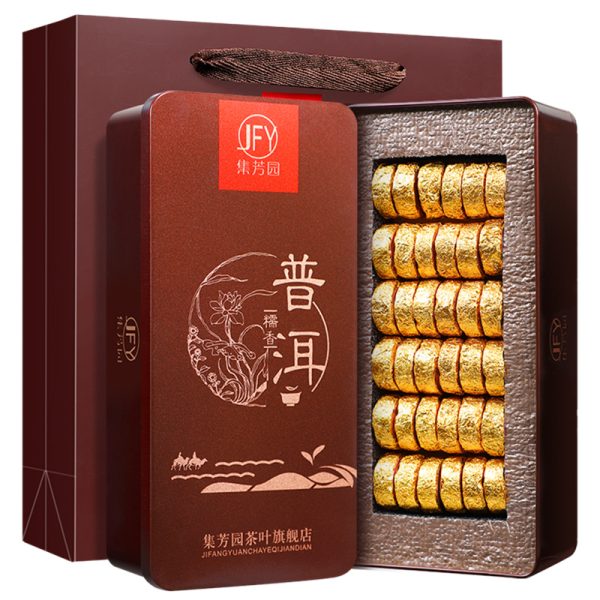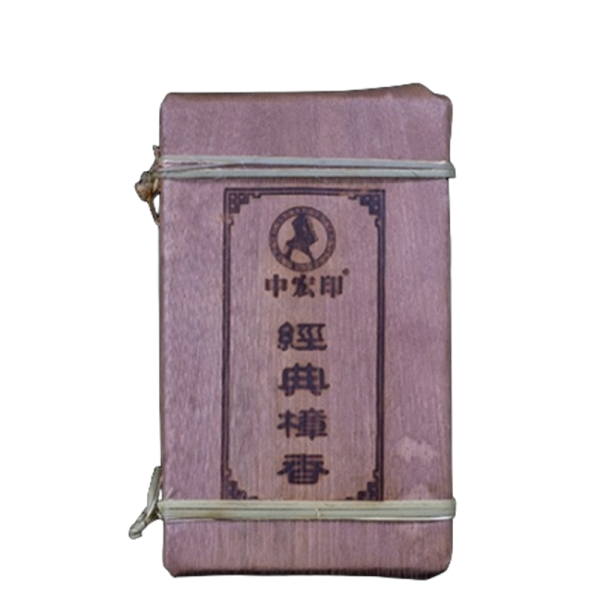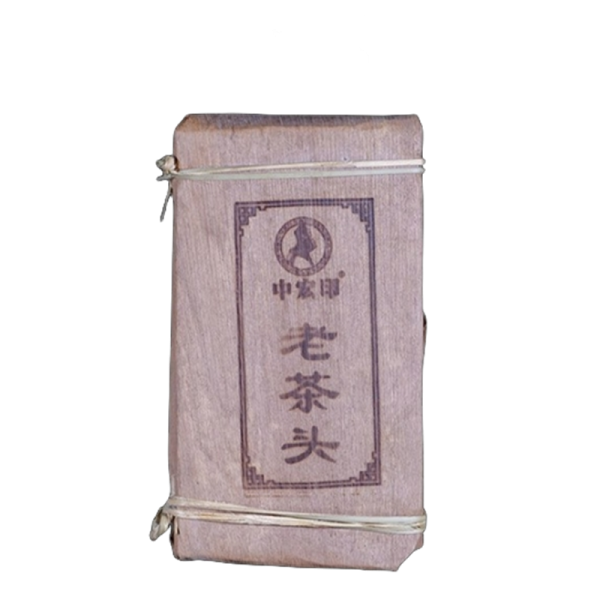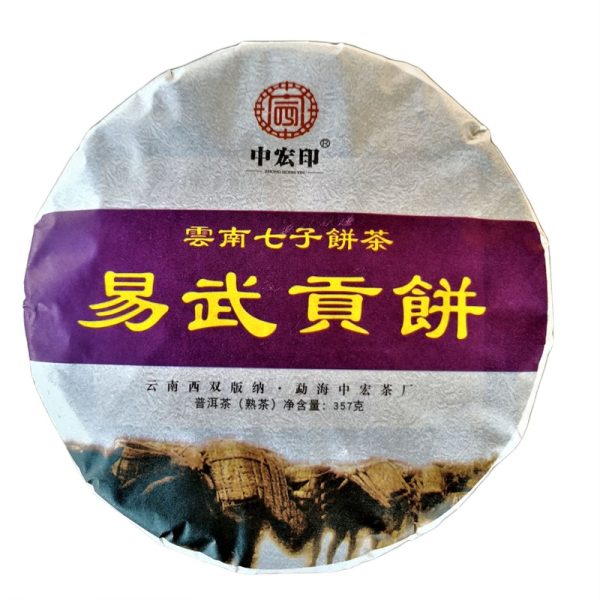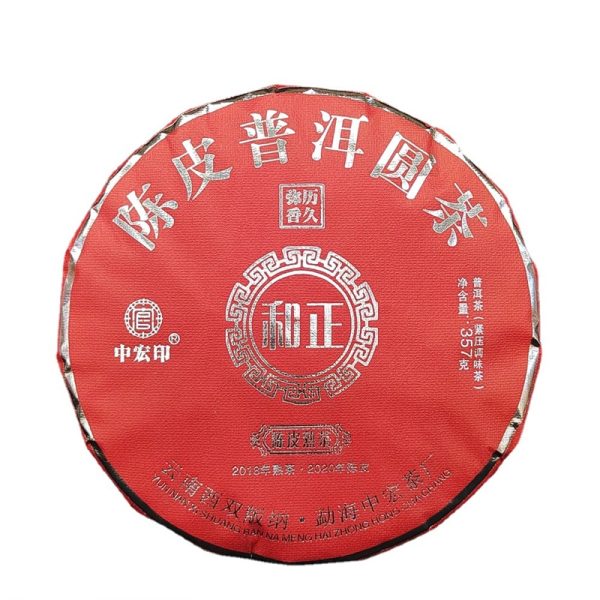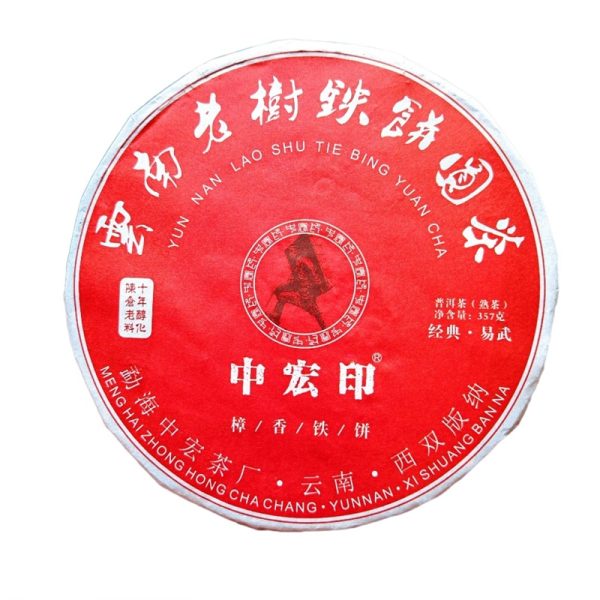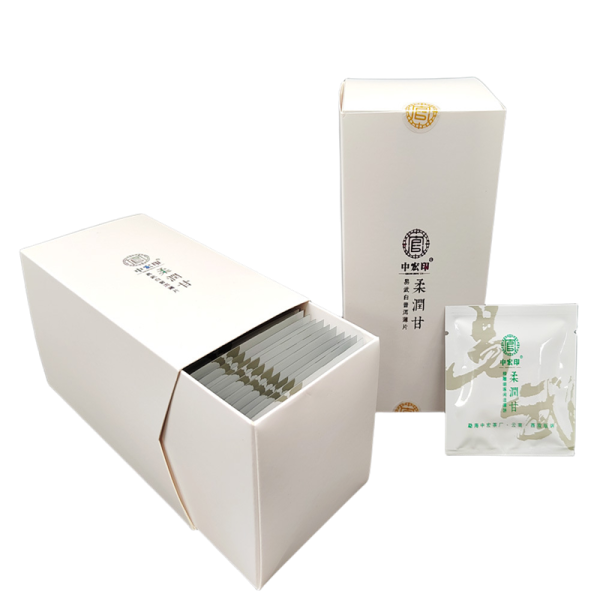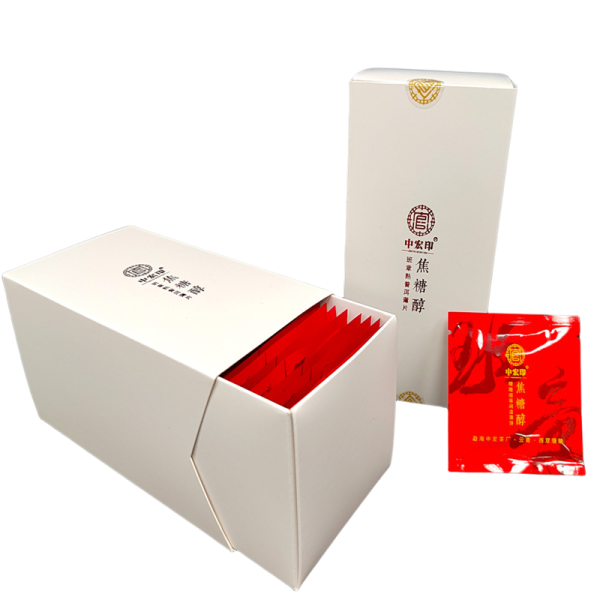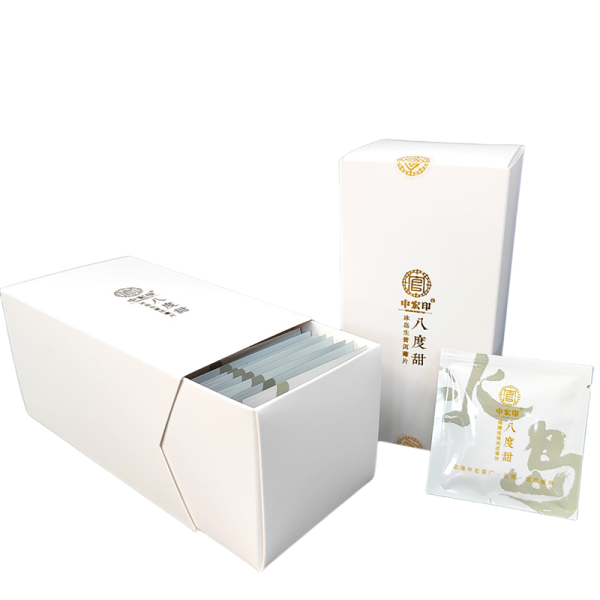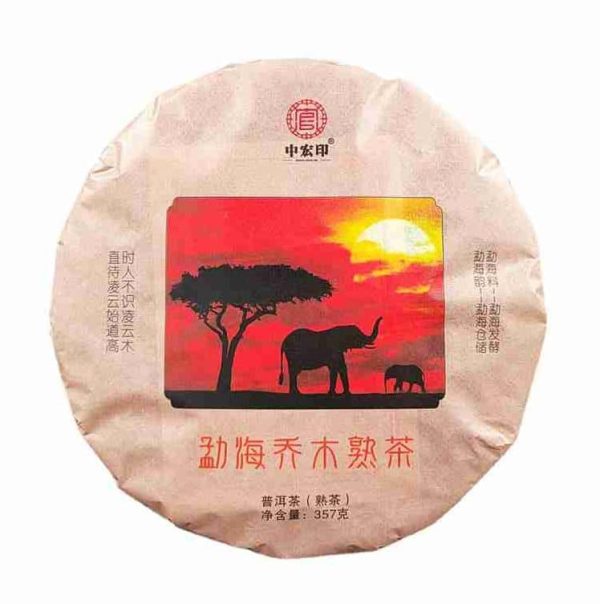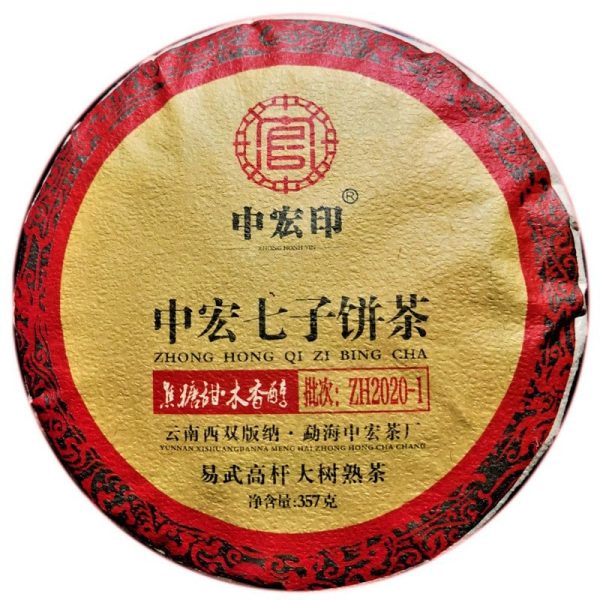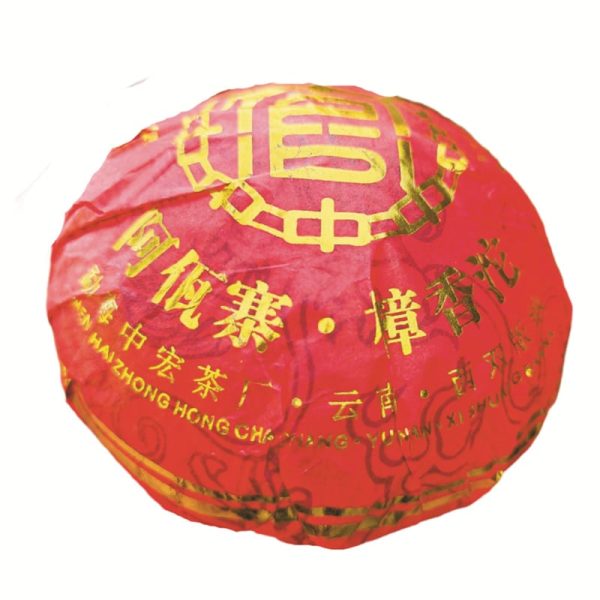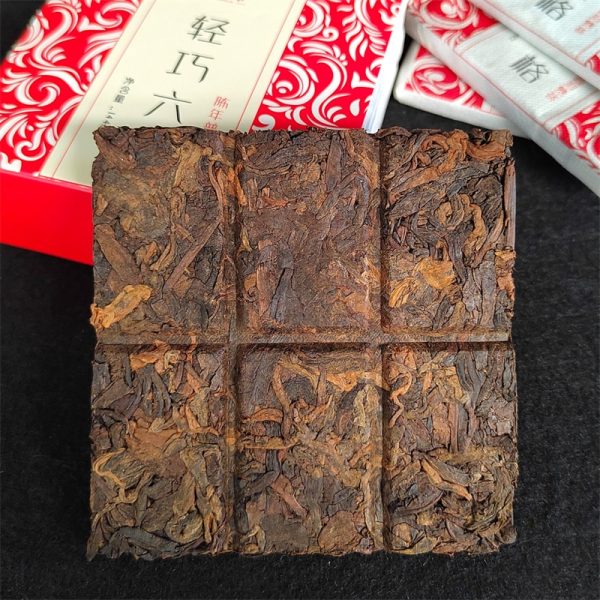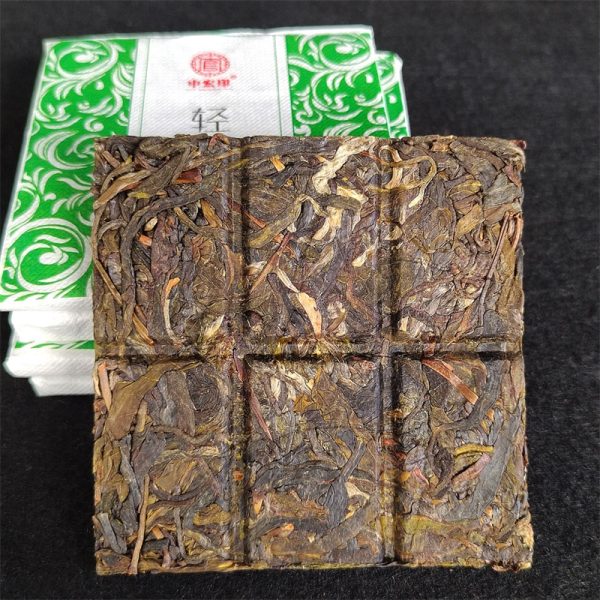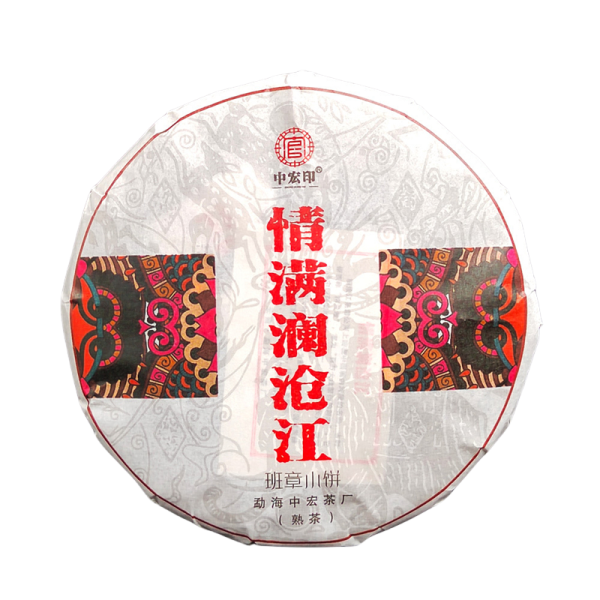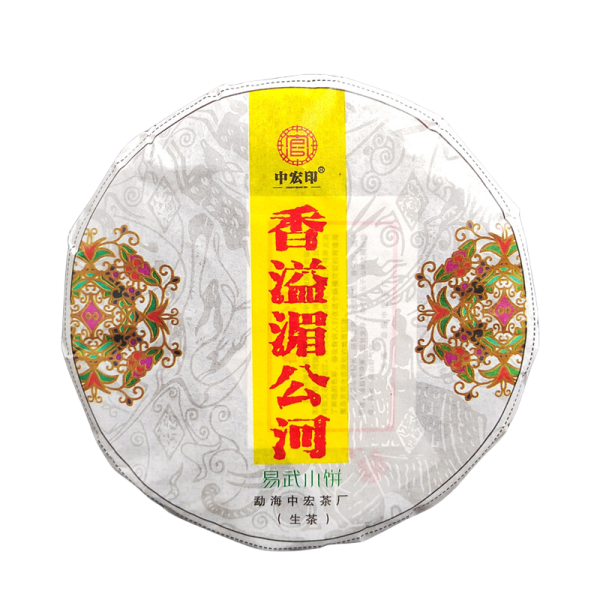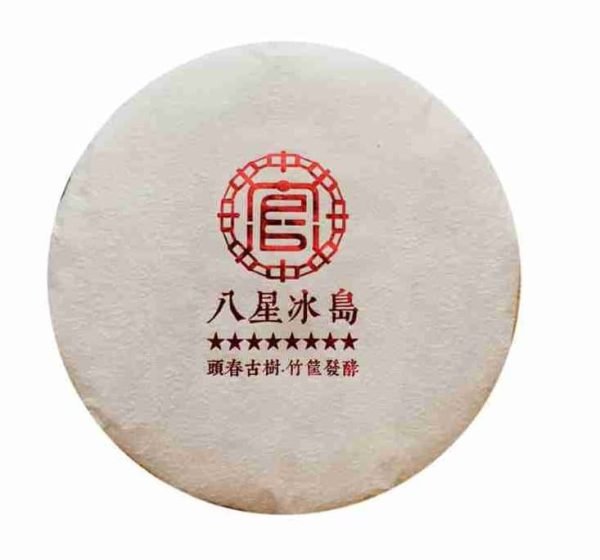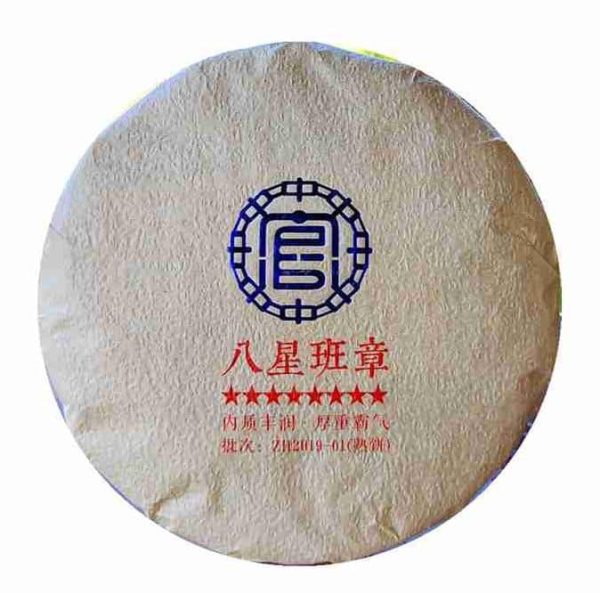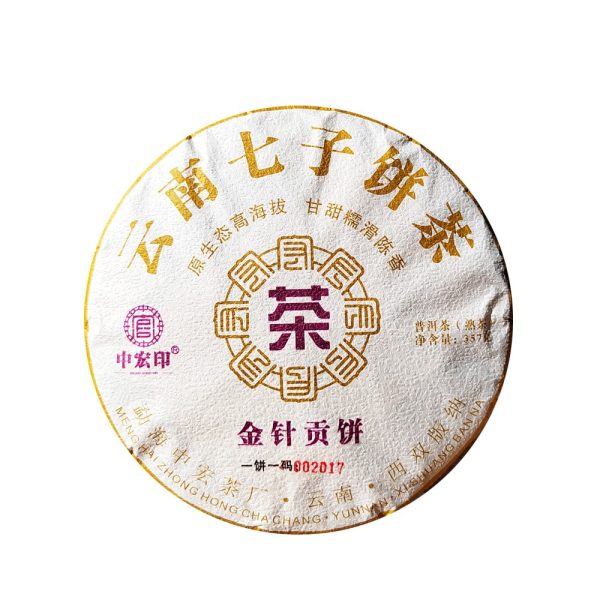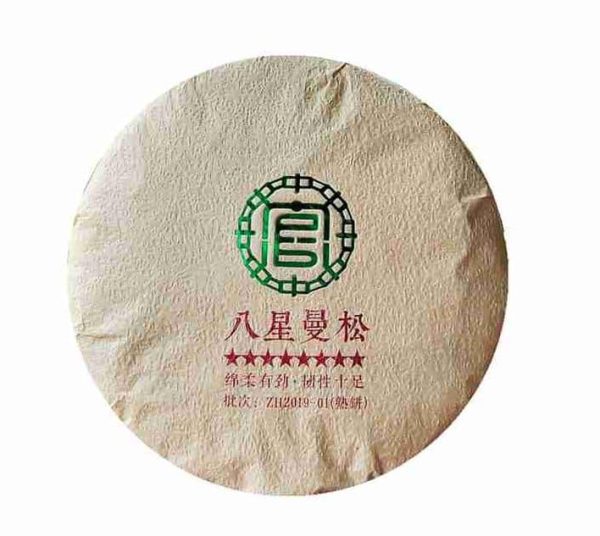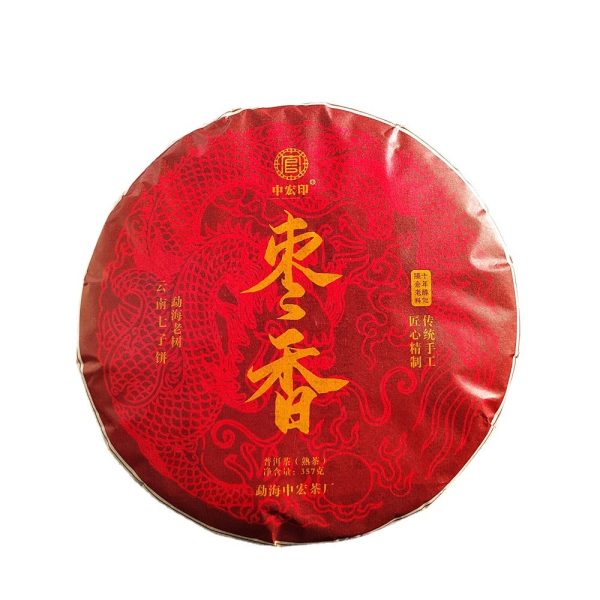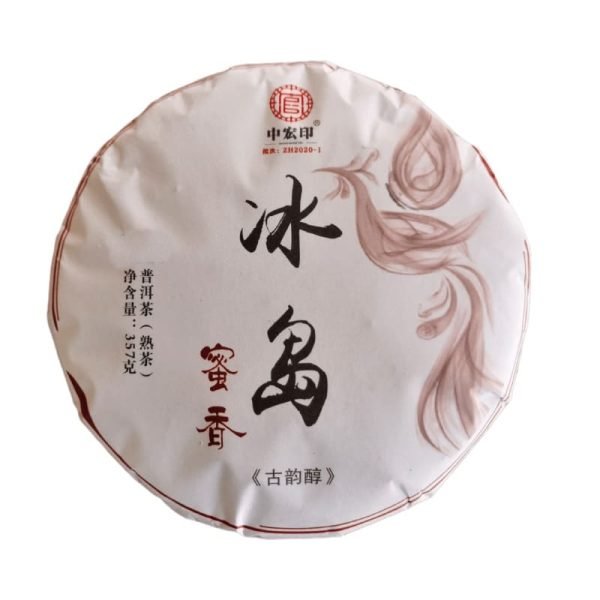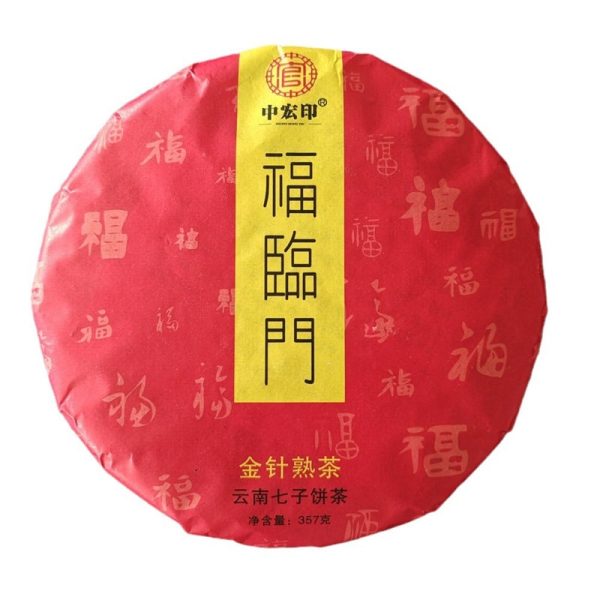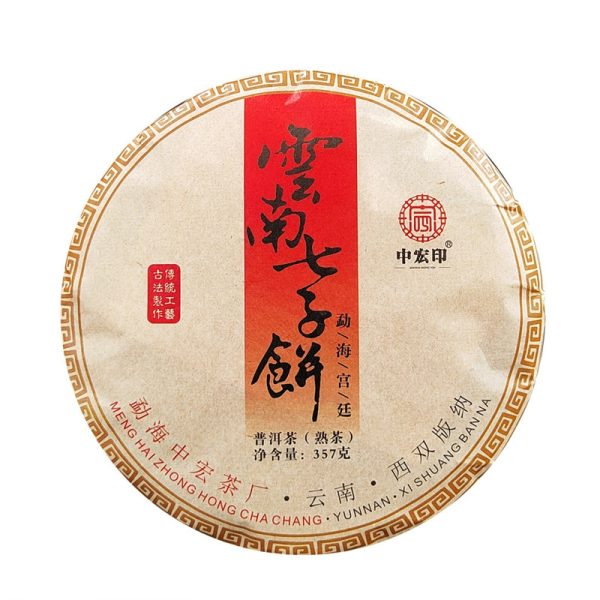Best Puerh Tea from Yunan Province, China
Delve into the world of exquisite Puerh tea with our carefully curated selection, sourced directly from the esteemed tea regions of Yunnan province. Our collection includes an array of prestigious Puerh teas, such as the robust Menghai Puerh, the revered Lao Ban Zhang Puerh, the aromatic Lin Cang Puerh, and the delicate Bingdao Puerh, among others. We take pride in offering both raw and ripe variations, catering to a spectrum of palates and preferences. Our teas’ vintages range from the storied leaves of 2005 to the fresh harvests of 2024, each offering a unique narrative of flavor and tradition. Embark on a journey through the rich tapestry of Puerh tea, and discover a world where each sip tells a story of craftsmanship, heritage, and the lush Yunnan landscape.
Why Our Puerh Tea Tastes So Good?
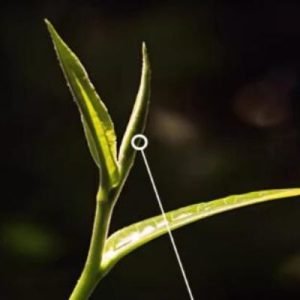
Premium Early Spring Harvest
Our puerh tea is distinguished by its early spring harvest, specifically the 'Ming Qian Tou Chun' flush. Harvested at high altitudes, these tender leaves embody purity and superior quality. This careful selection results in a tea that offers a rich and nuanced flavor profile, setting the stage for a premium drinking experience.
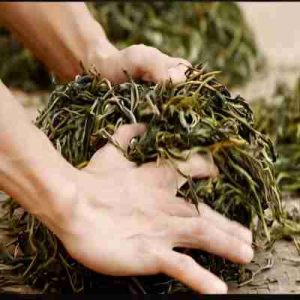
Artisanal Hand-Rolling
Our tea's authenticity is enriched by traditional hand-rolling techniques. This labor of love by skilled artisans not only preserves the leaf structure but also amplifies the tea's flavor release, ensuring a uniquely tactile and flavorful experience with every sip.
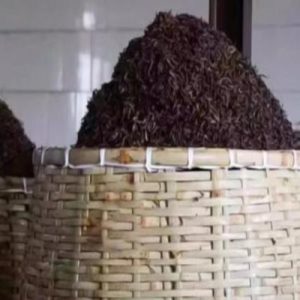
Crafted Fermentation Process
Our unique fermentation employs small-batch bamboo baskets, ensuring cleanliness and precision. Over 50-60 days at 40-60°C, this method allows prolonged microbial interaction, utilizing pristine mountain spring water for flavor. This meticulous process ensures our tea's distinctive, robust, yet refined profile.

Optimal Storage Conditions
Aged for a decade in a specialized warehouse, our tea benefits from ideal conditions like consistent 20-27°C temperatures and 40-70% humidity. These factors are crucial for enhancing the tea's complexity and character, offering a matured taste that distinguishes our puerh from others.
Shop Organic and Authentic Puerh Tea
-
2019 Ripe Puerh Tea Cake Gift Box
Rated 5.00 out of 5$79.00Original price was: $79.00.$59.99Current price is: $59.99. -
2009 Camphor Tree Fragrance Brick Ripe Pu-erh Tea of Yi Wu
Rated 5.00 out of 5$128.00Original price was: $128.00.$108.00Current price is: $108.00. -
2009 Menghai “Lao Cha Tou” Brick Ripe Pu-erh Tea
Rated 5.00 out of 5$128.00Original price was: $128.00.$108.00Current price is: $108.00. -
2017 Spring Palace Tribute Ripe Pu-erh Tea Cake of Yi Wu
Rated 5.00 out of 5$128.00Original price was: $128.00.$108.00Current price is: $108.00. -
2018 Tangerine Peel Ripe Pu-erh Tea Cake of Menghai
Rated 5.00 out of 5$98.00Original price was: $98.00.$78.00Current price is: $78.00. -
2009 Old Tree Ripe Pu-erh Tea Cake of Yi Wu
Rated 5.00 out of 5$208.00Original price was: $208.00.$168.00Current price is: $168.00. -
2021 Spring Soft And Sweet Small Piece Raw Pu-erh Tea of Yi Wu
Rated 5.00 out of 5$128.00Original price was: $128.00.$108.00Current price is: $108.00. -
2017 Spring Caramel Mellow Aroma Small Piece Raw Pu-erh Tea of Lao Ban Zhang
Rated 5.00 out of 5$128.00Original price was: $128.00.$108.00Current price is: $108.00. -
2021 Eight Degrees Sweet Small Piece Raw Pu-erh Tea of Bing Dao
Rated 5.00 out of 5$138.00Original price was: $138.00.$118.00Current price is: $118.00. -
2017 Spring Arbor Ripe Pu-erh Tea Cake of Menghai
Rated 5.00 out of 5$128.00Original price was: $128.00.$108.00Current price is: $108.00. -
2016 Spring Old Tree with Tall Trunk Ripe Pu-erh Tea Cake of Yi Wu
Rated 5.00 out of 5$138.00Original price was: $138.00.$118.00Current price is: $118.00. -
2017 Spring Wa Village Ripe Pu-erh Tea Tuo of Lincang
Rated 5.00 out of 5$128.00Original price was: $128.00.$108.00Current price is: $108.00. -
2019 Spring Ripe Pu-erh Tea Brick of Menghai
Rated 5.00 out of 5$78.00Original price was: $78.00.$58.00Current price is: $58.00. -
2023 Spring Raw Pu-erh Tea Brick of Bing Dao
Rated 5.00 out of 5$78.00Original price was: $78.00.$58.00Current price is: $58.00. -
2016 Spring Small Ripe Pu-erh Tea Cake of Lao Ban Zhang
Rated 5.00 out of 5$68.00Original price was: $68.00.$48.00Current price is: $48.00. -
2022 Spring Small Raw Pu-erh Tea Cake of Yi Wu
Rated 5.00 out of 5$68.00Original price was: $68.00.$48.00Current price is: $48.00. -
2019 Spring Palace Tribute Ripe Pu-erh Tea Cake of Bing Dao
Rated 5.00 out of 5$268.00Original price was: $268.00.$198.00Current price is: $198.00. -
2017 Spring Lao Ban Zhang Palace Tribute Ripe Pu-erh Tea Cake of Menghai
Rated 5.00 out of 5$208.00Original price was: $208.00.$168.00Current price is: $168.00. -
2012 Golden Needle Tribute Ripe Pu-erh Tea Cake of Menghai
Rated 5.00 out of 5$208.00Original price was: $208.00.$168.00Current price is: $168.00. -
2017 Palace Tribute Ripe Pu-erh Tea Cake of Mansong
Rated 5.00 out of 5$128.00Original price was: $128.00.$108.00Current price is: $108.00. -
2017 Jujube Fragrance Ripe Pu-erh Tea Cake of Menghai
Rated 5.00 out of 5$128.00Original price was: $128.00.$108.00Current price is: $108.00. -
2017 Spring Old Tea Tree Ripe Pu-erh Tea Cake of Bing Dao
Rated 5.00 out of 5$128.00Original price was: $128.00.$108.00Current price is: $108.00. -
2017 Spring Gold Bud Palace Ripe Pu-erh Tea Cake of Yi Wu
Rated 5.00 out of 5$128.00Original price was: $128.00.$108.00Current price is: $108.00. -
2012 Aged Palace Ripe Pu-erh Tea Cake of Menghai
Rated 5.00 out of 5$208.00Original price was: $208.00.$168.00Current price is: $168.00.
Why Choose Chasourcing's Puerh Tea

Pristine Origins
Tea leaves are picked from ancient trees thriving in regions above 1500 meters altitude in Yunnan Province. With an annual precipitation exceeding 1374 millimeters and a mild climate of 15-20°C, the conditions are ideal for tea cultivation and help get premium Pu'erh tea leaves.

Handpicked Elegance
Each tea leaf is delicately handpicked, ensuring the utmost care and attention to quality. This manual selection process guarantees that only the finest leaves are chosen, preserving the integrity and flavor of the Pu'er tea.

Traditional Brewing Techniques
Our Pu'erh tea is crafted using traditional methods passed down through generations. These time-honored techniques not only uphold the authenticity of the tea but also enhance its distinctive aroma, flavor, and texture, creating an unparalleled sensory experience for tea enthusiasts.
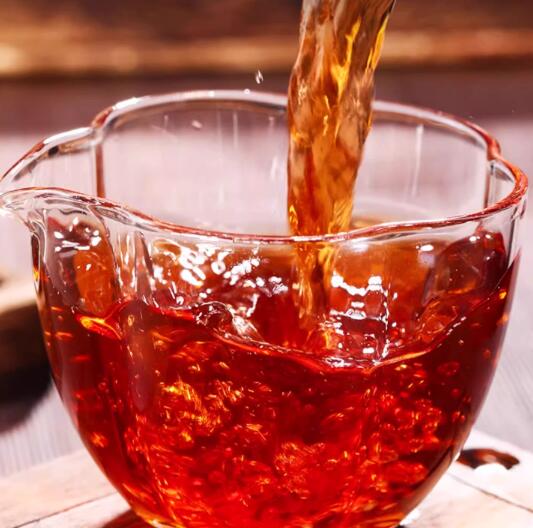
Authentic Flavor Profile
Our Pu'erh tea boasts the most authentic flavor profile, characterized by glossy, dark leaves adorned with abundant tea buds. When brewed, the tea exhibits a rich, copper-red hue with a fragrant aroma. Its taste is smooth and velvety, with a subtle sweetness lingering on the palate,offering you a satisfying tea-drinking experience.
About Puerh Tea
Immerse yourself in the prestigious realm of Puerh tea with our curated assortment, meticulously selected from the renowned terroirs of Yunnan. Our portfolio features illustrious names like Menghai, Lao Ban Zhang, Lin Cang, and Bingdao, presenting a spectrum of flavors and aromas. We proudly offer both raw and ripe Puerh teas, aged from 2005 to 2024, to suit every palate and occasion. These teas embody the essence of Yunnan’s tea-making artistry and tradition, offering connoisseurs and newcomers alike an authentic taste of Puerh’s rich legacy. Explore our collection and experience the unparalleled elegance and complexity of our Puerh teas
What Counts as Puerh Tea
Understanding what truly defines Puerh tea illuminates its value and uniqueness, distinguishing it from the myriad of teas available worldwide. Here are the critical factors that authenticate Puerh tea:
Geographic Origin
True Puerh tea originates exclusively from Yunnan Province, China, a region celebrated for its ideal tea-growing climate and rich biodiversity. The unique terroir of Yunnan, characterized by its misty mountains and fertile soils, imbues Puerh tea with its distinctive flavors and aromas. Only tea harvested within this geographic sanctum can claim the prestigious title of Puerh.
Processing Method
Puerh tea undergoes a unique production process that includes withering, rolling, fermenting, and drying. This meticulous process is pivotal in developing the tea’s character. For raw Puerh, the leaves are allowed to age naturally, enhancing their complexity over time. Ripe Puerh, alternatively, is fast-tracked through a controlled post-fermentation process, achieving a maturity and depth that typically takes years to develop in raw Puerh.
Aging Potential
One of the hallmark traits of Puerh tea is its capacity to evolve with age. Like a fine wine, Puerh tea’s flavor, aroma, and color transform and deepen over years or even decades. This aging potential is a testament to the tea’s quality and craftsmanship, offering an ever-changing and enriching tasting experience.
Authenticity and Certification
Genuine Puerh tea is not just about its birthplace or processing; it also carries a mark of authenticity. Look for certification or verification from recognized bodies that confirm the tea’s origin and processing methods. This assurance guarantees that you are experiencing true Puerh tea, crafted according to time-honored traditions.
By recognizing these essential elements, connoisseurs and enthusiasts can fully appreciate the depth and breadth of Puerh tea’s heritage and enjoy a beverage that is as rich in history as it is in flavor. Embrace the journey into Puerh tea, where each cup offers a narrative of its illustrious past and a taste of its profound artistry.
What Does Puerh Tea Taste Like?
Embark on a sensory expedition through the nuanced world of our Puerh tea collection, where each variety offers a unique palate of flavors shaped by their distinct origins and processing methods. Discover the individual character and complexity of our Menghai, Lao Ban Zhang, Lin Cang, and Bingdao Puerh teas:
Menghai Puerh Tea:
Menghai Puerh embodies a robust essence, maturing from its initial earthy vigor to a symphony of deeper, nuanced tones. With time, it unfurls layers of dark chocolate and succulent fruit, transitioning from bold assertiveness to a rich, rounded maturity. Each sip of Menghai reflects its evolution, offering a tapestry of flavors that resonate with the heritage of its terroir.
Lao Ban Zhang Puerh Tea:
Lao Ban Zhang Puerh stands as a pinnacle of potency and aroma, captivating with its harmonious blend of floral, fruity, and herbal notes. As it ages, it transforms, maintaining its lively essence while gaining a subtlety that enhances its depth. This tea is a vibrant journey, with each stage of maturation revealing new dimensions of its spirited character.
Lin Cang Puerh Tea:
Lin Cang Puerh is a tribute to aromatic sophistication, beginning with delicate floral whispers that evolve into a profound narrative of honey and spice. Its graceful aging process enhances its elegance, offering a lingering, velvety finish that speaks to the finesse of its production. Lin Cang is a tea of stories, each cup a chapter unfolding its intricate and fragrant tale.
Bingdao Puerh Tea:
Bingdao Puerh is the essence of refreshment and subtlety, presenting a lighter facet of Puerh that matures beautifully. It starts with a clear, bright profile, introducing floral and fruity nuances that deepen over time, developing a rich, smooth complexity. Bingdao’s journey from crispness to depth epitomizes the artful balance of Puerh tea, inviting a serene exploration of its gentle yet profound flavors.
Through these exceptional Puerh teas, immerse yourself in a diverse world of taste, tradition, and transformation, where each variety offers a distinct and memorable experience.
Why Makes Puerh Tea So Special
what makes Puerh tea special is its dynamic nature—capable of evolving with age, offering a wealth of health benefits, and connecting drinkers to a rich artisanal tradition. Each cup is a journey, an exploration of flavors, history, and craftsmanship, setting Puerh tea apart as a truly extraordinary beverage in the vast tea landscape.
What Is Unique to Puerh Tea
Puerh tea distinguishes itself in the tea world with unique characteristics that resonate with those seeking not just a beverage, but an extraordinary experience. Here are the attributes that make Puerh tea a standout choice:
Distinctive Aging Potential
The aging process of Puerh tea is a marvel, allowing its flavors to evolve and mature over time. This transformation is unique to Puerh, offering a palette of flavors that range from youthful zest to sophisticated depth as the tea ages. The ability to improve with time is a hallmark of Puerh tea, providing a dynamic tasting experience that changes year after year.
Exclusive Fermentation Technique
What sets Puerh apart is its specialized fermentation process. This not only imbues the tea with a range of complex flavors and aromas but also endows it with notable health benefits. The microbial activity during fermentation can enhance the tea’s digestibility, contribute to gut health, and offer a distinctively smooth, rich profile that is profoundly different from unfermented teas.
Rich Flavor Spectrum
Puerh tea offers an extraordinary diversity in taste, influenced by its type (raw or ripe), region of origin, and age. From the bright, invigorating notes of a young raw Puerh to the deep, earthy undertones of a well-aged ripe one, each variety presents a unique flavor journey. This broad spectrum makes Puerh tea a fascinating category to explore, appealing to a wide array of taste preferences.
Natural and Healthful Brew
Puerh is renowned for its natural, health-promoting properties. It’s a tea that not only pleases the palate but also benefits the body, supporting digestion, aiding in weight management, and providing a source of antioxidants. The combination of delightful flavors and health advantages contributes significantly to its special status among teas.
In essence, Puerh tea’s specialness lies in its complex aging process, distinctive fermentation, diverse flavor profile, and natural health benefits. These attributes come together to create a tea experience that is not just about enjoyment but also about engaging with a beverage that stands out for its depth, variety, and wellness properties.
Puerh Tea vs Other Tea Leaves
Puerh tea’s unique attributes set it apart in the tea landscape, offering a distinct experience compared to other popular varieties such as green, black, oolong, and white teas. Here’s how Puerh compares with each of these, highlighting its singular qualities:
Puerh vs Green Tea
Green tea is celebrated for its fresh, grassy flavors and high antioxidant content, typically enjoyed soon after harvest to preserve its delicate taste and aroma. In contrast, Puerh, particularly the raw type, evolves from a similar fresh profile to a more complex, nuanced character over years. While green tea represents immediacy and freshness, Puerh embodies depth and maturity, evolving to reveal layered flavors that green tea does not possess due to its unfermented nature.
Puerh vs Black Tea
Black tea is fully oxidized, offering bold, robust flavors and a deep amber infusion. Unlike Puerh, its qualities are best when fresh and do not improve significantly over time. Puerh tea, especially the ripe variety, shares a depth of color and richness with black tea but surpasses it in complexity, offering evolving flavors and a body that can become increasingly smooth and nuanced with age.
Puerh vs Oolong Tea
Oolong tea, partially oxidized, strikes a balance between green and black teas, offering a variety of flavors depending on the degree of oxidation. While oolong can offer intricate flavors and aromas, Puerh stands out for its post-fermentation process and aging potential, which can transform its profile in ways oolong cannot achieve, providing a unique depth and evolving narrative in each cup.
Puerh vs White Tea
White tea is the least processed of all teas, known for its subtlety, lightness, and natural sweetness. Puerh, in stark contrast, is defined by its deliberate and complex processing, which includes fermentation and the potential for aging, leading to a boldness and depth that white tea does not typically exhibit.
Why Should You Try Puerh Tea
Exploring the world of Puerh tea offers a distinctive journey that extends well beyond the typical tea-drinking experience, presenting unique flavors, wellness attributes, and a profound cultural connection. Here’s a refreshed perspective on why venturing into Puerh tea can be a rewarding choice:
An Olfactory and Gustatory Journey
Puerh tea provides an unparalleled sensory experience, distinguished by its dynamic range of aromas and flavors. Each type, whether raw or ripe, tells a story through its sensory profile, evolving with age. From the fresh, vegetal notes of a young Sheng to the deep, earthy essence of an aged Shou, Puerh engages your taste buds and olfactory senses in ways no other tea can, making each brewing session a unique exploration.
Holistic Well-being
What sets Puerh apart in the realm of health is its fermentation process, offering a suite of benefits that are as satisfying as they are nourishing. It’s not just about enjoying a relaxing cup; it’s about partaking in a tradition known to aid digestion, promote cardiovascular health, and support metabolic function. Puerh tea stands out as a beverage that combines pleasure with health-promoting properties, offering a holistic approach to well-being.
A Conduit to Cultural Richness
Puerh tea doesn’t just tantalize the taste buds; it also serves as a gateway to the rich tapestry of Yunnan’s tea culture. By indulging in Puerh, you partake in a tradition that stretches back centuries, encompassing the skills, knowledge, and rituals passed down through generations. It’s a way to experience and appreciate the artistry and heritage behind one of the world’s oldest tea traditions.
Diverse Experiential Spectrum
The world of Puerh is vast and varied, offering a plethora of experiences through its different ages and types. Unlike teas that are best consumed fresh, Puerh invites you to explore a spectrum of maturity, from vibrant young teas to those with decades of refinement. This experiential diversity not only piques curiosity but also provides a broad palette of flavors and aromas to savor and compare.
In embracing Puerh tea, you engage with a beverage that is more than just a drink—it’s an experience that offers depth, variety, and a touch of the extraordinary. Whether you’re drawn to its taste, health benefits, or cultural significance, Puerh tea promises a rich and rewarding journey for those willing to explore its many facets.
Health Effects of Drinking Puerh Tea
Embark on a journey to wellness with Puerh tea, a remarkable beverage revered not just for its unique flavor but also for its array of health benefits. From supporting digestion to enhancing metabolic functions and boosting cardiovascular health, Puerh tea offers a holistic approach to well-being, making it a worthy addition to your daily regimen.
Health Benfits of Drinking Puerh Tea
Digestive Harmony
Puerh tea is highly regarded for its ability to foster digestive wellness. Rich in microbial flora from its unique fermentation process, it aids in balancing the gut microbiome, enhancing digestion, and promoting regularity. Regular consumption of Puerh can alleviate common digestive discomforts, making it an ideal beverage after meals to soothe the stomach and support overall digestive health.
Metabolic Boost
Drinking Puerh tea has been linked to an enhanced metabolic rate, making it a valued ally in weight management strategies. Its natural compounds can help stimulate the body’s metabolism, assisting in the faster processing of fats and sugars. Incorporating Puerh tea into a balanced diet and lifestyle can thus contribute to maintaining a healthy weight and supporting metabolic health.
Cardiovascular Care
Puerh tea’s impact on heart health is noteworthy. Its antioxidant properties and ability to aid in the regulation of blood cholesterol levels can play a significant role in cardiovascular wellness. By helping to reduce bad cholesterol (LDL) and potentially increasing good cholesterol (HDL), Puerh tea supports a healthy circulatory system, reducing the risk of heart-related issues.
Stress Reduction
The ritual of brewing and savoring a cup of Puerh tea can be a serene, meditative practice, offering mental clarity and stress relief. Beyond the psychological benefits of this ritual, the tea itself contains theanine, an amino acid known for its calming effects. This compound can help reduce stress and anxiety, promoting a sense of relaxation and well-being.
Immune Enhancement
Puerh tea’s antioxidants are vital in strengthening the body’s defense mechanisms. By fighting off oxidative stress and reducing inflammation, these antioxidants support the immune system, helping to ward off common illnesses and bolster overall health. Regular consumption of Puerh tea can thus be a flavorful way to enhance your body’s immune response.
Antioxidant Powerhouse
The fermentation process that Puerh tea undergoes increases its antioxidant content, particularly catechins and theaflavins, which can combat free radicals in the body. These antioxidants play a crucial role in cellular health, potentially reducing the risk of various chronic diseases and slowing down the aging process. By providing a rich source of these potent compounds, Puerh tea offers a delicious preventive strategy against oxidative stress.
Potential Side Effects of Puerh Tea You Should Be Aware Of
While Puerh tea is celebrated for its health benefits, it’s important to enjoy it mindfully, as with any dietary choice. Here are a few considerations to ensure you savor Puerh tea in moderation without adverse effects:
Caffeine Sensitivity
Puerh tea contains caffeine, which can be energizing and enhance mental clarity. However, for individuals sensitive to caffeine, consuming Puerh tea, especially in large quantities or late in the day, might lead to restlessness, insomnia, or palpitations. It’s advisable to monitor your body’s response and adjust your consumption accordingly to enjoy Puerh’s benefits without discomfort.
Digestive Nuances
While Puerh tea aids digestion for many, its robust nature could be overwhelming for some digestive systems, particularly when consumed on an empty stomach. To avoid potential discomfort like bloating or nausea, it’s recommended to enjoy Puerh tea after meals or ensure you introduce it gradually into your diet, allowing your body to acclimate to its potent properties.
Iron Absorption
Puerh tea, similar to other tea varieties, contains compounds that can inhibit the absorption of iron from plant-based sources. If you have concerns about iron deficiency or follow a diet reliant on plant-derived iron, consider consuming Puerh tea between meals to minimize its impact on iron absorption, ensuring you derive both enjoyment and nutritional balance from your diet.
By being mindful of these aspects, you can embrace Puerh tea as a delightful and beneficial addition to your daily routine, optimizing its advantages while being considerate of your body’s responses.
Choosing Between Puerh Tea and Coffee: Caffeined
Puerh tea does contain caffeine, an aspect that contributes to its invigorating qualities. However, when comparing the caffeine content between Puerh tea and coffee, it’s crucial to note that Puerh typically has less caffeine. On average, an 8-ounce serving of brewed coffee contains about 95 milligrams of caffeine, whereas the same amount of Puerh tea generally offers around 30-70 milligrams, depending on the brewing time and leaf maturity.
When deciding whether to opt for Puerh tea or coffee, consider not only the caffeine content but also your personal health goals and taste preferences. Puerh tea offers a smoother caffeine lift compared to the more immediate jolt from coffee, providing a gentler and more sustained energy boost without the abrupt crash. Additionally, Puerh tea brings a host of other benefits, such as aiding digestion and enhancing cardiovascular health, which coffee may not offer.
For those sensitive to caffeine or seeking a beverage with additional health properties, Puerh tea emerges as an excellent choice. Its lower caffeine content coupled with its rich, nuanced flavors and healthful attributes makes it a commendable alternative to coffee, suitable for enjoying throughout the day without overwhelming your system.
Brew and Store Puerh Tea
Mastering the Art: How to Brew Puerh Tea
Delve into the distinctive world of Puerh tea brewing, embracing its unique qualities and traditions. Follow these specialized steps, tailored specifically for Puerh, to craft a brew that honors its storied legacy:
Step 1: Choose Your Puerh Wisdom
Begin by selecting a Puerh that resonates with your taste. Whether it’s a vibrant, young Sheng or a mature, nuanced Shou, understanding and appreciating the character of your chosen Puerh is essential for a truly immersive brewing experience.
Step 2: Harmonize with Water
The essence of Puerh unfurls best with water that is just shy of boiling—around 95°C (203°F). Such precision ensures that the intricate flavors and aromas of Puerh are extracted gracefully, without the harshness that boiling water can impart.
Step 3: Awaken the Leaves
Puerh tea’s depth is best unveiled through a brief awakening rinse. This initial contact with hot water isn’t just about cleanliness; it’s a ritual that begins the unfolding of the leaf’s flavor story, setting the stage for the full expression of its profile.
Step 4: The Art of Steeping Puerh
After rinsing, steep the leaves with respect to their age and type. Younger Puerh may prefer shorter infusions, while aged leaves welcome a longer embrace with the water. This step isn’t just about timing; it’s about observing and engaging with the tea, allowing its character to dictate the length of each steep.
Step 5: Savor the Journey
Drinking Puerh is an experience that transcends mere taste. As you sip, consider the tea’s heritage, the land from which it came, and the hands that crafted it. Each cup is a chapter in a larger story, inviting reflection, appreciation, and a deeper connection to the world of tea.
By honoring these steps, you engage with the full spectrum of Puerh tea’s heritage and flavors, embarking on a brewing journey that is as rewarding as it is delicious.
Three Tips to Become a Master of Brewing Puerh Tea
Brewing Puerh tea is an art that intertwines tradition with personal preference. These tips are crafted to enhance your brewing experience, ensuring each cup of Puerh tea is as delightful and profound as intended.
Tip 1: Respect the Leaf’s Ancestry
Understand Your Puerh’s Origin: Each Puerh tea comes with its own story, influenced by its terroir, age, and processing. Before brewing, take time to learn about your tea’s background. Is it a raw (Sheng) or ripe (Shou) Puerh? What region is it from, and how old is it? This knowledge not only enriches your brewing experience but also allows you to adjust your brewing technique to suit the tea’s specific character, ensuring a more authentic and enjoyable cup.
Tip 2: Mastery of Water Temperature
Fine-Tune Your Water Heat: The ideal water temperature is crucial in unlocking the essence of Puerh tea. While near-boiling water is a general guideline, slight adjustments can be made for different types of Puerh. Younger raw Puerhs often thrive with slightly cooler water to prevent bitterness, while aged or ripe Puerhs can handle hotter water to extract their full depth. Observing the tea’s reaction to water temperature can lead to a more nuanced understanding and enjoyment of its flavors.
Tip 3: Engage with Each Infusion
Savor the Evolution: Puerh tea is renowned for its capacity for multiple infusions, with each steep revealing new dimensions of flavor and aroma. Engage actively with this process, noting changes with each infusion. How does the flavor evolve? What new aromas emerge? This mindful engagement turns the act of brewing Puerh into a dynamic dialogue between tea and tea lover, enriching the experience and deepening your appreciation for this complex beverage.
By integrating these tips into your Puerh tea brewing ritual, you not only enhance the taste and enjoyment of your tea but also connect more deeply with the rich cultural and historical tapestry that Puerh tea represents. Each cup becomes a journey, a moment of reflection, and a personal encounter with the legacy of this ancient and revered tea.
Best Practices to Store Puerh Tea
Proper storage is crucial for Puerh tea, as it significantly influences its aging process and flavor development. Here are four best practices tailored specifically for storing Puerh tea, ensuring its quality and character are preserved and even enhanced over time.
Practice 1: Embrace Breathability
Prioritize Porous Storage: Puerh tea thrives in an environment where it can breathe, essential for its aging process. Opt for storage solutions that allow air exchange without exposing the tea to harsh elements. Natural materials like unglazed clay or wooden containers can be ideal, facilitating the subtle exchange of air that is crucial for the maturation of Puerh tea while protecting it from odors and contaminants.
Practice 2: Shun Sunlight
Shield from Light: Exposure to direct sunlight can degrade Puerh tea, altering its delicate flavors and hindering its aging potential. Store your Puerh in a place where it is shielded from light, especially direct sunlight. A cupboard or a tea cabinet that does not receive direct outdoor light is ideal, helping to maintain the tea’s integrity and promote graceful aging.
Practice 3: Optimal Humidity Harmony
Balance Humidity Levels: While Puerh tea requires some humidity to age properly, excessive moisture can lead to mold growth and spoilage. Aim to maintain a relative humidity around 60-70%, a level that supports the tea’s aging without risking damage. In overly dry environments, consider a humidity-controlled storage solution; in damp conditions, ensure adequate air circulation to prevent condensation.
Practice 4: Temperature Consistency
Maintain Stable Temperatures: Extreme temperature fluctuations can stress Puerh tea, disrupting its aging process and flavor development. Store your tea in an environment with a stable, moderate temperature, ideally between 15-25°C (59-77°F). Consistent conditions support a steady, predictable aging trajectory, allowing the Puerh’s flavors and character to evolve beautifully.
By following these practices, you ensure your Puerh tea is stored in conditions that honor its unique requirements, fostering an environment where its flavors, aromas, and textures can mature and deepen, rewarding you with a tea that is as enjoyable to sip as it is to behold
Frequently Asked Questions About Our Puerh Tea
What is the difference between raw and ripe Puerh tea?
Raw (Sheng) Puerh is a naturally aged tea that develops its flavors over time, offering a more vibrant and nuanced taste profile. Ripe (Shou) Puerh undergoes an accelerated fermentation process, resulting in a richer, more mellow flavor from the outset. Both types offer unique tasting experiences and evolve with age.
How can I tell if a Puerh tea is of high quality?
High-quality Puerh tea should have a clean, distinct aroma and a flavor profile that evolves with each sip and infusion. Look for leaves that are intact and uniform in color. The brew should be clear, not murky, and the taste should linger pleasantly, revealing complexity and depth.
How long should I steep Puerh tea?
The ideal steeping time for Puerh tea can vary based on personal preference and the specific tea type. A general guideline is to start with a 20-30 second steep for the first infusion and adjust according to taste, with each subsequent infusion lasting a bit longer.
How can I store Puerh tea properly at home?
Store your Puerh tea in a cool, dry place away from direct sunlight, strong odors, and moisture. Proper storage is crucial for maintaining its quality and supporting the aging process, especially for raw Puerh intended for long-term maturation.
Is it normal for Puerh tea to have an earthy taste?
Yes, an earthy taste is characteristic of many Puerh teas, especially the ripe variety. This flavor is a result of the fermentation process and should be clean and pleasant, not musty or moldy. With age, the earthiness can develop into richer, more complex flavors.
What makes your Puerh tea selection special?
We pride ourselves on offering a diverse selection of Puerh teas, including both raw and ripe varieties from different years and regions. Our focus is on quality and authenticity, ensuring each tea provides a genuine and enjoyable Puerh experience.
How should I brew your Puerh tea for the best experience?
For the optimal brewing experience, we recommend using pure, filtered water at just below boiling temperature. Start with a brief rinse of the leaves, then steep for 20-30 seconds for the first infusion, adjusting the time to your taste for subsequent infusions.
